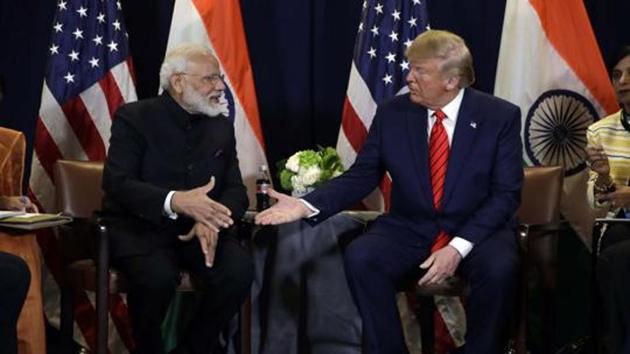
The US has finally agreed to discuss the vexed social security tax issue, which is a first step towards arriving at a ‘totalisation agreement’ that could allow Indian professionals working in America to get beck their social security deposits after their working visa expire, three officials said.

According to an industry estimate, Indians working in the US forfeit almost $1 billion annually as social security tax.
For the first time in almost a decade, the US has recently acknowledged that social security tax is a bilateral issue and has agreed to discuss it, which is a major feat, said the officials working in three different ministries, requesting anonymity.
“Last week, commerce secretary Wilbur Ross told commerce minister Piyush Goyal that the issue of social security tax could be discussed. This signifies India and USA are increasingly having stronger ties. It is certainly an extremely important development that India was trying bring on the table for several years without much success,” one of the officials mentioned above, who works in the ministry of external affairs (MEA) said.
Indian workers, particularly IT professionals, make huge social security contributions in the US social security scheme while they work in America, but most of them come back home before they are eligible to withdraw money from their social security contributions, leave their savings behind. A Totalisation Agreement between the two countries would save them from this financial loss.
A second person, who works in the commerce ministry, said Goyal had raised the matter in a tele-conversation with Ross on July 16 and the US commerce secretary response was positive. Ross offered to arrange a meeting between the US Social Security Administrator and Indian officials to discuss the matter and find a possible solution, he said.
It is expected that a team of Indian officials representing ministries of external affairs, commerce and labour would take this matter further. “This has opened up the possibility of initiating exploratory talks. A final solution would emerge after several rounds of talks, which may take several months. But, at least we are moving in the right direction,” the first official said.
“India and USA have totalisation agreement with several countries, some of them are common, hence a US-India totalisation agreement depends more on political will, which appears positive from both ends,” a third official working in the labour ministry said. India has bilateral social security agreements (totalisation agreement) with several countries such as Belgium, France, Germany, Switzerland, Luxembourg, Netherlands, Hungary, Denmark, The Czech Republic, Republic of korea and Norway.
It was a lost issue until Prime Minister Narendra Modi brought this up in February this year during President Donald Trump’s India visit.
Addressing a joint press conference with the US president at Hyderabad House in New Delhi on February 25, PM Modi had said, “I have requested President Trump that the contribution of our professionals, in terms of social security, should be discussed further within the framework of a totalization agreement. This will be of mutual interest to both of us.”
Shivendra Singh, vice president and head -- global trade development at NASSCOM, an industry association representing 180-billion dollar technology industry, said, a totalisation agreement would provide huge relief to the Indian employee population in the US and also make it competitive for US employers to employ Indian citizens. “Further, in order for the negotiations to proceed, as we are told, considering that statute dictates the requirements, it is the U.S. Congress need to pass legislation to change these regulations,” he said.
“Using existing laws as an exception to deny Indian workers their own contributions and not extend any benefits to those who contribute towards the U.S. Social Security system cannot continue forever,” he added.
Divakar Vijayasarathy, founder and managing partner of consultancy firm DVS Advisors LLP said, “Social security contributions (SSC), similar to EPF and ESI in India, are prevalent globally. In a world where employees are globally mobile, the case for SSC deductions in multiple jurisdictions become unavoidable. India is one of the largest exporters of quality talent globally and Indian employees are more prone to double deduction of SSC than citizens of most jurisdictions.”
“Unlike the case of tax credits, there is no case for SSC credits in either jurisdiction. Hence countries enter into SSAs [social security agreements] to ensure that, based on the fulfilment of certain conditions, the concerned employee would be subject to SSC deduction in only one jurisdiction,” he added.